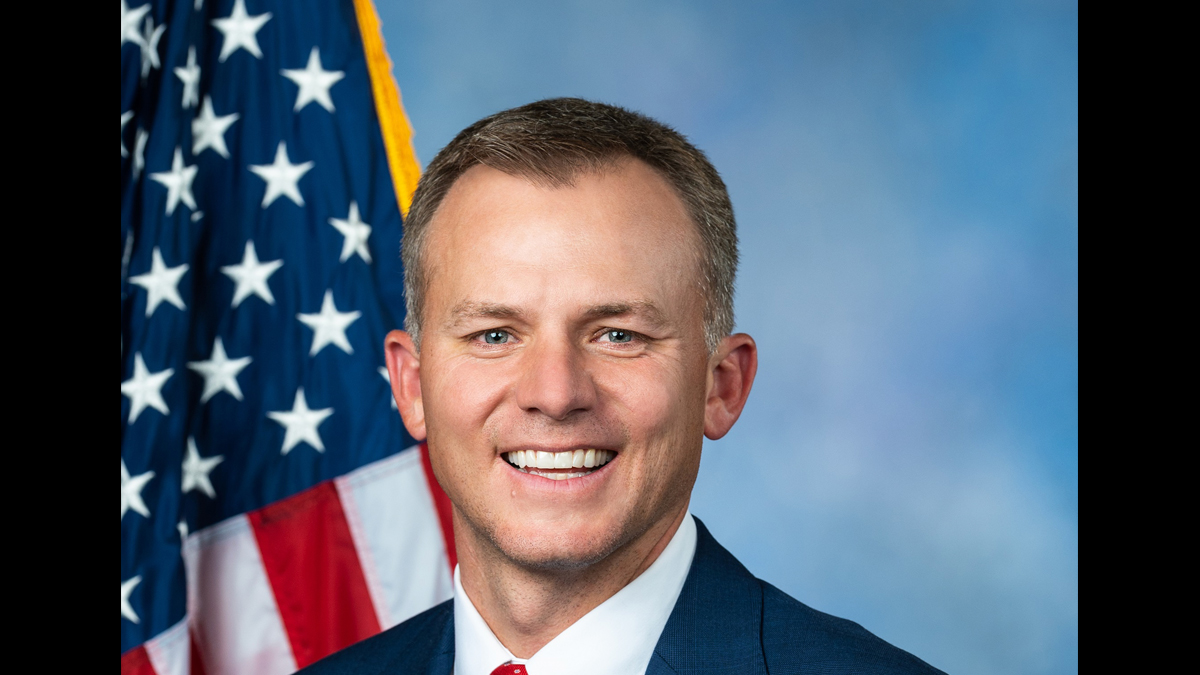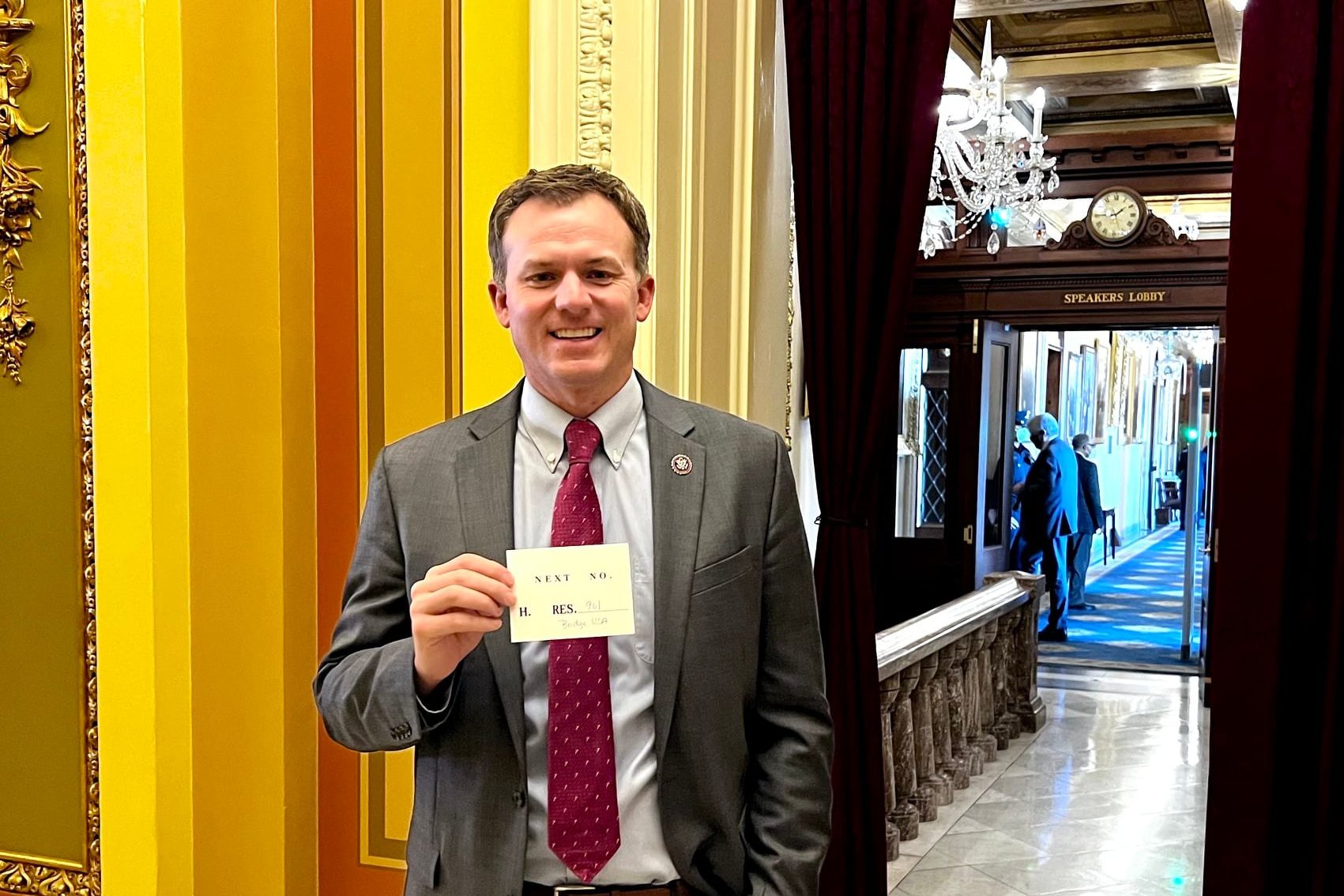Politics
Congressman Blake Moore reintroduces Bipartisan HOPE Act to boost healthcare savings

Vice Chair of the House Republican Conference Photo: United States Congress
WASHINGTON— Congressman Blake Moore (R-Utah) has reintroduced the bipartisan Health Out-of-Pocket Expense (HOPE) Act for the 119th Congress. This legislation aims to create a tax-advantaged savings account to help millions of Americans manage health care costs through individual and employer contributions.
Moore was joined by Representatives Jimmy Panetta (D-Calif.), Brian Fitzpatrick (R-Pa.), Raul Ruiz (D-Calif.), Adrian Smith (R-Neb.), and Brad Schneider (D-Ill.) in reintroducing the measure.
“Health care costs are one of the biggest issues I hear about from Utah patients, providers, and employers, and addressing this pressing issue is a top priority for me in Washington,” said Congressman Moore. “I am grateful to reintroduce the bipartisan HOPE Act to create a new tax-advantaged savings account that will help families plan and save for medical expenses. The HOPE Act is a step in the right direction in making health care more affordable for Utahns and Americans across the country.”
“The rising cost of health care continues to challenge working families, making it even more important to have accessible ways to save for out-of-pocket medical expenses,” said Congressman Panetta. “By reintroducing the bipartisan HOPE Act, we’re providing Americans with a tax-advantaged savings tool that allows them to plan for their future health care needs. This commonsense legislation would help ensure that individuals managing medical costs, regardless of their insurance type, have a better sense of security in their family’s finances and health care.”
“The HOPE Act offers a lifeline to the people of PA-1 and families across the nation struggling under the crushing weight of skyrocketing medical costs,” said Congressman Fitzpatrick. “This bipartisan legislation puts control back where it belongs—in the hands of families—by providing them with a powerful, tax-advantaged tool to manage their healthcare expenses. By lifting the financial strain of an increasingly unaffordable system, the HOPE Act ensures no family must choose between their health and their financial future.”
“Hardworking families need better options to address their health expenses given the rising cost of care,” said Congressman Ruiz, MD. “The HOPE Act is a key step forward, allowing families to save money for health care expenses in a tax-free account—without being tied to expensive high-deductible insurance plans.”
“This bipartisan bill will help families better plan for unexpected health emergencies,” said Congressman Smith. “HOPE Accounts are a strong solution to empower Americans to save money and address the high cost of healthcare. I thank Rep. Moore and my other colleagues for working with me to reintroduce this important legislation.”
“Empowering families to efficiently save for future expenses via HOPE accounts, especially as healthcare costs continue to rise, will promote Americans’ financial and physical well-being,” said Congressman Schneider. “That’s why I am proud to reintroduce the HOPE Act, which creates a new tax-advantaged savings account for healthcare expenses geared specifically towards working-class individuals and families.”
Background on the HOPE Act
Health care costs continue to rise, often surpassing inflation and GDP growth. The HOPE Act is designed to help families manage out-of-pocket expenses and plan for future medical care.
Key features of the proposed HOPE Accounts include:
- Eligibility for individuals with qualifying coverage, including commercial insurance, Medicare, Medicaid, and the Indian Health Service.
- Tax-advantaged contributions, where individual contributions are not tax-deductible, but employer contributions are deductible for employers and excludable from income and employment tax for individuals earning $100,000 or less ($200,000 for families).
- Annual employer and state program can make contributions up to 50% of the annual limit.
- Maximum annual contributions of $4,000 for individuals and $8,000 for families, with contributions to Health Savings Accounts (HSAs), Flexible Spending Accounts (FSAs), or Health Reimbursement Arrangements (HRAs) reducing the allowable HOPE Account contributions.
- Tax-free earnings growth if funds are used for qualified medical expenses.
The full text of the legislation is available here.

















